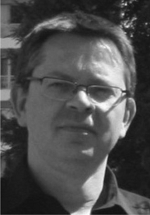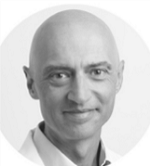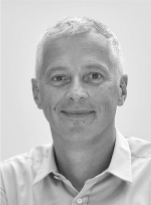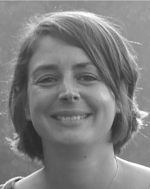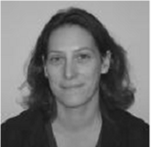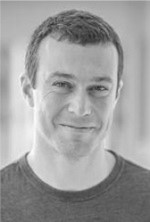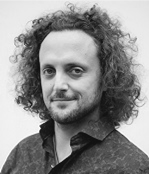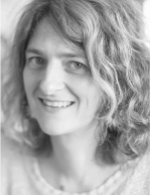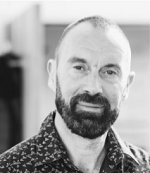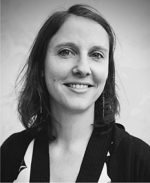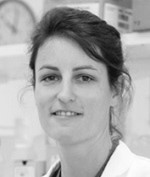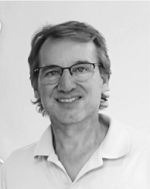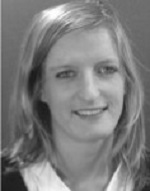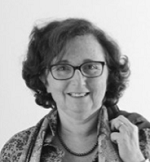
|
|
|
Invited speakersDidier Auboeuf, LBMC, ENS Lyon, France
Didier Auboeuf is director of the “Laboratory of Biology and Modeling of the Cell” (LBMC) at ENS Lyon, where he leads the team "Regulation of Genome Architecture and Dynamics of Splicing". This team investigates the relationship between the 3D organization of the human genome and post-transcriptional regulation of gene expression.
Giacomo Cavalli, Institute of Human Genetics, CNRS, University of Montpellier, France
Giacomo Cavalli is head of the Chromatin and cell biology group at the Institute of Human Genetics in Montpellier, France and a member of the French Academy of sciences since 2022. He made seminal contributions in the field of epigenetics. Using the fruit fly, he discovered that epigenetic inheritance of new phenotypes can occur independently on changes of the DNA sequence. His lab also discovered that the three-dimensional organisation of chromosomes in the cell nucleus is a heritable trait that plays an important gene regulatory role.
Alain Chedotal, Sorbonne University, INSERM, CNRS, Vision Institute, France
Alain Chédotal is a research PI, team leader at Institut de la vision, Paris (Inserm, CNRS, Sorbonne Université) and a member of the French Academy of sciences. His team’s research is focused on the development of neuronal networks in the vertebrate brain, with a specific interest in the molecular mechanisms controlling neuronal migration and axon guidance.
Stéphanie Debette, University of Bordeaux (UBx), France
Stéphanie Debette is Professor of Epidemiology at the University of Bordeaux (UBx) and Director of the Bordeaux Population Health Research Center Inserm UMR1219. She practices as a neurologist at the Memory Center, within the Center Hospitalier Universitaire de Bordeaux (CHUB). She is Deputy Director of the ELEANOR team on the molecular epidemiology of vascular and neurological pathologies. Her research focuses on genetic and environmental factors of stroke, MRI markers of brain aging, small cerebral artery disease and cognition.
Mélanie Hamon, Pasteur-Paris Institute, France
Mélanie Hamon is the head of the “Chromatin and Infection” team at Pasteur-Paris Institute. Her team studies the role of induced chromatin modifications during bacteria-host interactions and their long-term consequences, at the interface between microbiology, epigenomics and innate immunity.
Anne-Louise Leutenegger, Inserm NeuroDiderot, GenMedStroke Lab, Paris, France
Anne-Louise Leutenegger is a research Scientist at Inserm NeuroDiderot (U1141), GenMedStroke Lab, Paris. Her research interests lie at the interface of biostatistics, genetic epidemiology and population genetics. It has focused so far on developing methods for studying the genetic component of human diseases in populations where marriages between relatives are common (inbred and/or isolated populations).
Pierre Milpied, Centre d’Immunologie de Marseille-Luminy, Marseille, France
Pierre Milpied joined the Centre d’Immunologie de Marseille-Luminy (CIML) in 2014, in the team of Dr Bertrand Nadel, to apply single-cell analysis methods to the study of B cell immunity and lymphomas. Since then, he has been designing and leading original research at the crossroads of B cell immunology, cancer science, and bioinformatics. He was recruited as junior scientist by Inserm in 2016 and have been selected to lead his own research group at CIML in 2018.
Etienne Patin, Pasteur-Paris Institute, France
Etienne Patin is a CNRS researcher in the ‘Human Evolutionary Genetics’ lab at Institut Pasteur (Paris). His work revolves around three research themes: (i) the genetic history of human populations with different subsistence strategies, (ii) the role of admixture in genetic adaptation in humans, and (iii) environmental and genetic factors affecting human variation in the immune system.
Mélanie Pruvost, PACEA, Université de Bordeaux, France
Mélanie Pruvost is a paleogenetician, specializing in the study of human and animal populations using ancient DNA. Coordinator of the ANR Ancestra project (2015-2020) - Genetic characterization of ancestral French populations using ancient DNA (ANR-15-CE27-0001, 2015-2020), she was particularly interested in the settlement of the territory that corresponds to present-day France from the Mesolithic to the Early Middle Ages.
Jean-Jacques Schott, Thorax Institute, Inserm, Nantes, France
Jean-Jacques Schott is director of Research (Inserm) and head of the team “Cardiovascular Genetics” at the Thorax Institute in Nantes. He is developing research projects on the genetics of cardiovascular diseases. One of his projects on the translational approach in genetics and physiopathology of rhythmic and degenerative heart disease aims to identify biological risk markers for early prevention and new targets for innovative therapies.
Laure Ségurel, LBBE, University of Lyon 1, France
Laure Segurel is a researcher in population genetics in the Laboratory of Biometry and Evolutionary Biology in Lyon, France. Her broad research interests are using genetic data to understand human evolution: How are populations adapting to diverse environmental pressures (climate, diet, pathogens)? How are humans and microbes co-evolving? How various cultural features (matrimonial rules, language) shape the genetic diversity?
Céline Vallot, Curie Institute, Paris, France
Céline Vallot is head of the Dynamics of epigenetic plasticity in cancer (DEpiC) group at Institut Curie, Paris, France. With her team, she works in the epigenetic mechanisms at play during response to cancer treatment as well as in the early steps of tumorigenesis in breast cancers. She also founded the ‘One Biosciences’ start-up with the Institut Curie, which aims to become a world leader in precision medicine for complex diseases.
Jean-Philippe Vert, Owkin, France
Jean-Philippe Vert is a research scientist at Owkin and affiliate research professor at PSL University’s Centre for computational biology at Mines Paris, working on machine learning (a.k.a. artificial intelligence) and computational biology. His long-term goal is to understand how machines can learn from data, and to use them to power scientific breakthroughs in biology and medicine.
Laure-Emmanuelle Zaragosi, University of Côte d’Azur, CNRS, France
Laure-Emmanuelle Zaragosi is a permanent researcher at the "Institut de Pharmacologie Moléculaire et Cellulaire" (Sophia-Antipolis, France). She is focussing on the regeneration of the human airway epithelium and an active member of the Human Cell Atlas Lung biological network.She has identified new molecular mechanisms operating during the regeneration of the airway epitheliumand has characterized the variability of cell composition in the airways of healthy donors. These works resulted in the establishment of the first airway cellular atlas from healthy donor biopsies by single-cell sequencing. The data is now part of the Human Cell Atlas and is used by many groups around the world as a reference.
Jessica Zucman-Rossi, Cordeliers research centre, University of Sorbonne, INSERM, France
Jessica Zucman-Rossi is the Director of the Centre de Recherche des Cordeliers, UMRS1138, Inserm, Sorbonne Université, Université de Paris, of the team « Functional Genomics of Solid Tumors, FunGeST », and is a Professor of Medicine (PU-PH), Université de Paris-Hôpital Européen Georges Pompidou, AP-HP in the Oncology department. She is an expert in liver tumor genomics, and studies with her team all the genes involved in solid tumors.
|
| Online user: 3 | Privacy |

|
